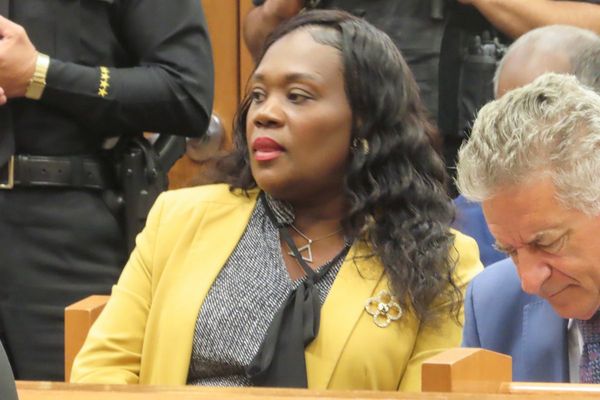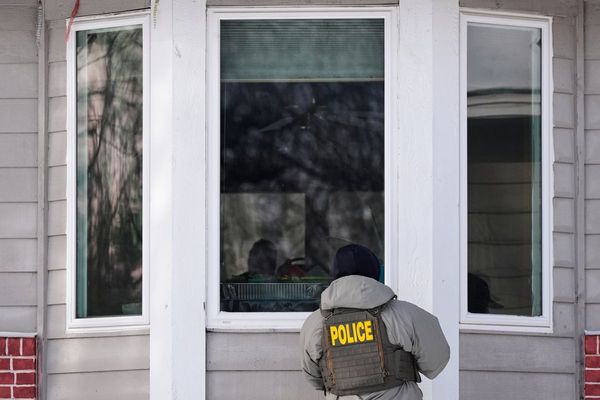
“Mr. Beaver, my father is an optician with three full-service optical stores in our state. We lost Mom two years ago and just recently Dad has been going out with Hillary, a lovely lady who is 50 and a widow. They are discussing living together to test their relationship, aiming at marriage if all goes well. I am concerned about their financial disparity. Dad is wealthy, and Hillary has more modest means. I believe they need some sort of a cohabitation agreement if they do move in together and do not get married. However, Dad does not want to disturb the waters with a formal agreement. What do you recommend? Thanks, ‘Darren.’”
I asked Scott Levin, in his 20th year of practicing family law in San Diego with a focus on mediation, about this. “Darren’s father is fortunate. He has a son who worries about him becoming a victim of his own need for companionship,” he said. “While cohabitation — instead of marriage — is extremely common today, unmarried couples lack the legal protection marriage provides, virtually assuring disputes over who owns what and who is responsible for shared debts, even if one partner contributed more to acquiring property during the relationship.”
What cohabitation agreements can do
What should unmarried couples who live together do to protect themselves? “Cohabitation and domestic partnership agreements are essential legal instruments that describe the rights and responsibilities of partners who choose to live together without marriage,” Levin said, “especially where there is a large disparity in finances. If things go south (in the relationship), couples often face a nightmare.” It’s especially a problem when one of the partners gets ill or dies.
Anyone who has watched Judge Judy has seen her scold people for “playing house,” sometimes for years, and then expecting a judge to straighten out their finances. Courts typically leave the parties where they are.
Specific risks when there’s no cohabitation agreement
Levin listed a few of the most common examples of what can result when there is no cohabitation agreement or domestic partnership:
How property is titled determines ownership. A home is purchased in Joe’s name, and he is living with Carol. Regardless if both have made payments, in general, the home will go to Joe in the event of a breakup. Even if they live in a community property state, those laws do not apply as there is no community because there was no marriage.
Difficulty in obtaining health insurance. Many work health insurance plans do not allow participants to add a non-married partner.
No right to make medical decisions for an ill partner. Without a medical power of attorney, the partner of an ill person has no right to make medical decisions for them or obtain their health information.
No inheritance rights without a trust or will. In states that do not recognize common law marriage, couples could live together for years, and unless there is a trust or will, the surviving partner has no inheritance rights. If the home is in Joe’s name, and he dies, Carol does not inherit the home unless Joe has specified his wishes in his will or set up a trust.
Domestic partnerships provide significant legal protections
A domestic partnership provides many of the benefits of an actual marriage. Levin lists several:
- Shared ownership rights of property acquired during the relationship
- Shared responsibility for debt acquired during the relationship
- The power to make health care decisions for each other
- The ability to file suit for the wrongful death of a partner
Returning to my reader’s question, Levin points out that if Hillary moves into Darren’s father’s house without a cohabitation agreement and things fall apart, there is a possibility that she could acquire renter’s rights. Even if her name isn’t on the deed of the home, he can’t just throw her out. Most state laws protect her legal right to live there once a certain amount of time has passed.
“Just imagine the stress on Darren’s father if he has to go to court to get her to leave. The cost and emotional toll would be enormous,” Levin said. “This is all the more reason to have something in writing that addresses this issue — for example, giving her written notice and a certain number of days to move.”
A cohabitation agreement can also offer Hillary protection in the event that Darren’s father dies and his children want to boot her out of the home.
“Be clear in your communication and honest with your goals,” Levin added. “Talk openly about money and long-term plans. Share information about your finances — what each person makes and owns. It is better to have a clear understanding in order to avoid a misunderstanding later. Protect each other with a cohabitation agreement and by putting estate documents in place so you have plans in the event of a breakup or death while you’re together but not married.”
Dennis Beaver practices law in Bakersfield, Calif., and welcomes comments and questions from readers, which may be faxed to (661) 323-7993, or e-mailed to Lagombeaver1@gmail.com. And be sure to visit dennisbeaver.com.







